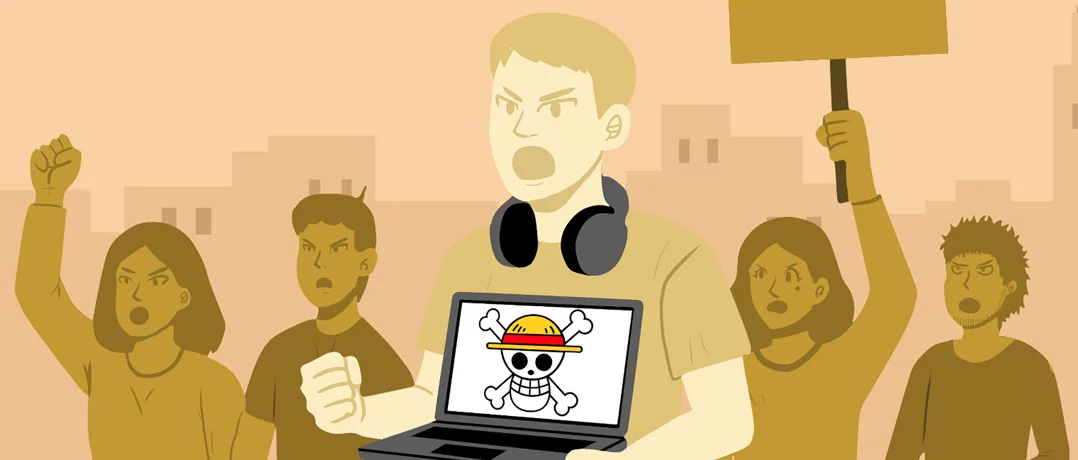From Lebanon’s 2019 Revolution to protests across the globe, Gen Z is turning frustration into action, proving that silence is no longer an option.
Gen Z rising: Youth-led protests sweep across continents
Gen Z rising: Youth-led protests sweep across continents


Born into a world of rapid change, constant connectivity, and widening inequality, Generation Z has never known a time when authority went unquestioned. They grew up watching empty promises, systemic corruption, and leaders who failed to deliver. Rejecting old hierarchies and traditional deference, they were raised to question everything, and now they are taking that skepticism to the streets.
Lebanon: The spark of defiance
In Lebanon, Gen Z’s frustration ignited the October 2019 Revolution. Over a million young people poured into the streets, demanding an end to sectarian politics, transparency, and systemic reform. Their activism shook the political establishment, empowered independent MPs, and proved that youth-led movements could challenge entrenched elites. The revolution was more than a protest; it was a declaration that the younger generation would no longer accept a broken system.
Observers have drawn parallels between today’s youth-led protests in Morocco, Peru, Nepal, Madagascar, and beyond, and the historic demonstrations of 2019, when mass mobilizations from Beirut to Bogota and Hong Kong to Harare challenged entrenched power structures.
Harvard political scientist Erica Chenoweth sees hope in the growing number of people worldwide embracing innovative nonviolent resistance.
More people are using these techniques today than in any other period in recorded human history. This is an incredible privilege to be alive during this moment.” The same spirit that defined the global protest wave of 2019, decentralized, creative, and defiant, now pulses through Gen Z’s movements.
A connected generation, fighting back
The spirit of Lebanon’s youth has resonated worldwide. From Morocco to Nepal, young people are mobilizing via social media platforms like TikTok, Discord, and Telegram. Local grievances, unemployment, corruption, rising costs, have become catalysts for broader demands for justice, accountability, and systemic change.
Like Lebanon’s revolutionaries, today’s global protests are leaderless, spontaneous, and transnational. Young activists are redefining political engagement, forcing governments to confront inequalities and listen to voices long ignored. Their message is unmistakable, silence is no longer an option, and the next generation is reshaping the rules of power.
Morocco: Breaking the “Wall of Fear”
In Morocco, Gen Z 212, named after the country’s dialing code, has erupted into the largest youth-led uprising in over a decade. Online debates spilled onto the streets of Rabat, Casablanca, and beyond, with tens of thousands demanding better healthcare, education, and jobs.
Public anger intensified after several women died following routine C-sections in Agadir, highlighting a healthcare system in crisis while billions are spent on World Cup preparations. Violent clashes have left at least three dead and hundreds injured, with more than 400 arrested. Prime Minister Aziz Akhannouch has expressed readiness for dialogue, but protesters call for his resignation. “This movement has broken the wall of fear and exposed a political class that has lost legitimacy,” said analyst Aziz Chahir.
Madagascar: From power cuts to political revolt
In Madagascar, chronic power outages and water shortages sparked the country’s largest protests in years. Initial demands for basic services expanded into a broader fight against corruption and decades of political neglect.
President Andry Rajoelina dissolved his government in a bid to calm tensions, declaring,
I heard the call; I felt the suffering.
But for many young protesters, it was too little, too late. Gen Z Mada, organized mainly via Facebook and TikTok, has vowed to continue pushing for reforms. UN estimates report at least 22 deaths and over 100 injuries, though the government disputes these figures.
Peru: Rising against corruption and crime
In Peru, protests that began over pension reforms on September 20 have evolved into a nationwide uprising against corruption, crime, and inequality. Students and workers rally under the slogan “A life without fear,” reflecting a generation that sees its future slipping away amid political dysfunction and economic insecurity. President Dina Boluarte’s approval rating has fallen to just 2.5%, according to the Institute of Peruvian Studies.
Nepal: Social media ban sparks uprising
In Nepal, a government ban on social media in early September triggered one of the country’s most explosive youth uprisings in history. Protests escalated into riots, leaving at least 72 dead and forcing Prime Minister Sharma Oli to resign. Demonstrators torched government buildings and stormed parliament, accusing leaders of corruption and economic mismanagement.
Many waved flags featuring the One-Piece manga skull with a yellow hat, symbolizing rebellion against corrupt rulers and the pursuit of freedom. The emblem has transcended borders, appearing in protests from Morocco to Madagascar as a shared mark of Gen Z defiance.
A global generation of activists
A generation united by frustration, Gen Z is reshaping activism. From Kenya to Indonesia, Kathmandu to Casablanca, young people are rising without leaders, organizing online, and challenging power on a global scale. “Gen Z feels a catastrophic sense that the future has been cancelled,” said Subir Sinha of SOAS South Asian Institute.
Spontaneous, digital, and transnational, their protests topple governments, expose inequalities, and declare one thing clearly: “You don’t need a big organization anymore,” noted Bart Cammaerts of the London School of Economics. Gen Z is sending a message that reverberates across continents, Silence is no longer an option.


